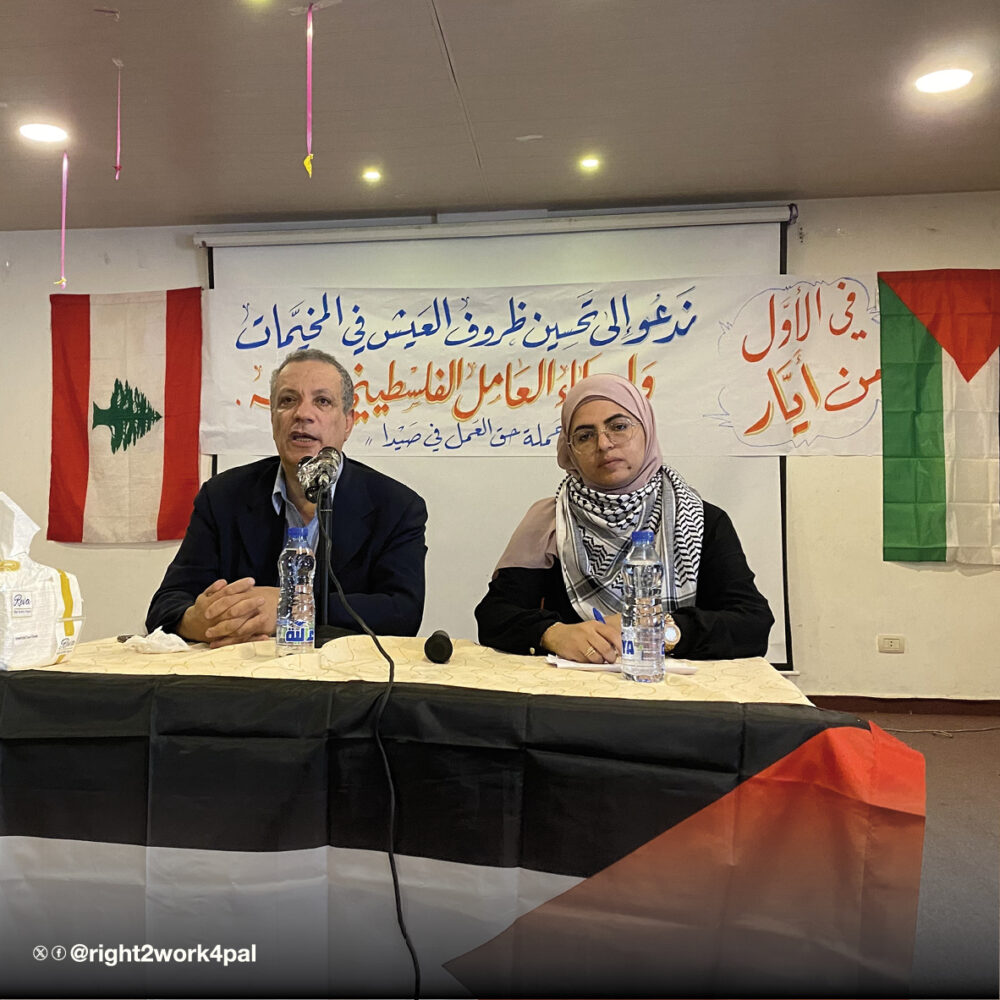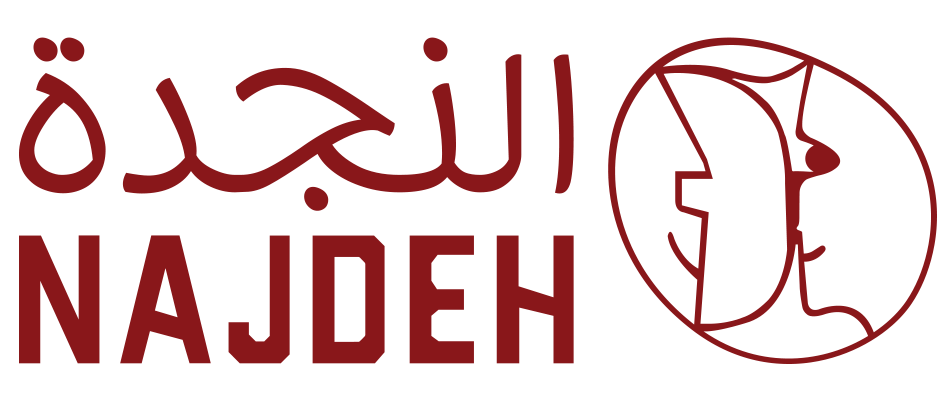
The Situation of Palestinian Refugees in Lebanon and the Impact of the Economic Crisis on Palestinian Labour in Ain al-Hilweh Camp
02/05/2024
Ain al-Hilweh: On the occasion of International Workers’ Day, the Lebanese-Palestinian Coalition for the Right to Work Campaign for Palestinian Refugees in Lebanon organised an interactive seminar and open discussion titled “The Situation of Palestinian Refugees in Lebanon and the Impact of the Economic Crisis on Palestinian Labour.” The event was attended by representatives of factions, political parties, national and Islamic forces, popular committees, NGOs, women’s committees, the Engineers’ Union, social associations, and activists from the local community, including workers.
After welcoming the attendees, Mrs. Jamal Kleib, Executive Director of the Social Solidarity Association, delivered the coalition’s statement for International Workers’ Day: “No economic and social justice without ending the genocide of Palestinian workers. Greetings and appreciation to workers around the world, especially to those in Palestine, Gaza, the West Bank, Jerusalem, and the occupied territories, who, like other members of the Palestinian people, endure systematic violations by the Israeli occupation: harassment at military checkpoints, targeting of labour and agricultural facilities, land confiscation, and suffering from genocide, starvation, and displacement in Gaza. Special recognition is given to the workers in Lebanon and Palestine who face harsh economic conditions and overcome difficulties to ensure a decent living for their families.” The discussion highlighted key issues affecting Palestinian labour.
Fathi Kleib, a researcher and journalist on Palestinian affairs, spoke about the severe crisis affecting Palestinian workers as part of a broader targeting of all refugee groups suffering from an economic war aimed directly at UNRWA. This crisis is exacerbated by the political and economic situation in Lebanon, with Palestinian refugees being the most affected due to their limited options. He noted that this pressure is likely to increase, citing the year-long cut in US funding for UNRWA as an example of such pressures that may take various forms in the future.
Kleib added that the economic warfare aimed at drying up UNRWA’s financial resources has failed, but the pressure continues. Increased economic pressure is expected on refugees in Lebanon, particularly workers, whether through heightened pressure on UNRWA or continued legal restrictions and harassment of Palestinians under questionable pretexts. He cited the actions of Minister Camille Abu Suleiman and the resistance from racist factions against improvements sought by Minister Mustafa Bayram for Palestinian labour conditions as examples.
Kleib concluded by stating that Palestinian workers and refugees in Lebanon only demand the basic human right of legal recognition through legislation that protects them, enabling them to work freely without legal persecution. He emphasised that Palestinian workers do not compete with Lebanese workers and are, in fact, a vital part of the Lebanese economy. The legal pressures and closure of the Lebanese job market to Palestinian workers have led to widespread economic collapse, as reflected in UNRWA’s data showing extremely high poverty rates among refugees in Lebanon.
He stressed that addressing the difficult economic and social conditions faced by Palestinian workers requires cooperation from international, Lebanese, and Palestinian authorities to develop solutions that the refugees can no longer endure alone. Palestinian official and popular bodies, including the Authority, the Organisation, and the factions, must develop joint policies to mitigate the crisis, provide minimum living requirements, and mobilise a unified popular movement to press UNRWA and donor countries to adopt policies and measures in line with the Lebanese situation.
The seminar included valuable contributions from the attendees, and at the end of the event, several workers were honoured for their efforts and dedication in supporting development in their workplaces.
